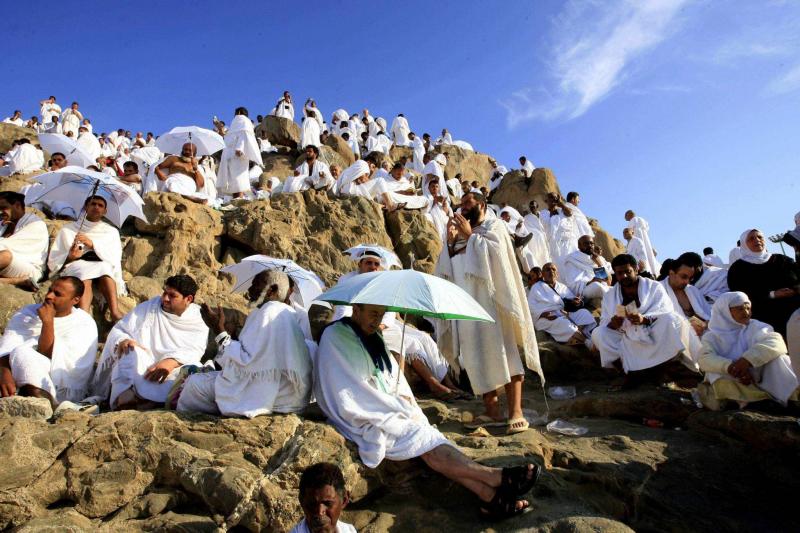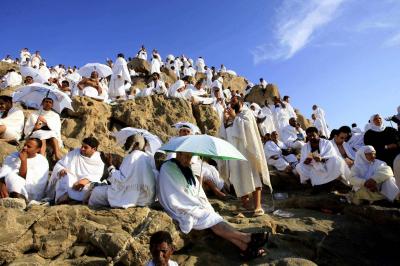Today, Sunday, pilgrims began arriving at the Grand Mosque early on the morning of Eid al-Adha to perform the Tawaf al-Ifadah, amid a comprehensive system of services and intensive organization implemented by the authorities managing the affairs of the Sacred Mosque, as part of their field plan to ensure a smooth and easy flow for the pilgrims to carry out their rites.
Pilgrim groups set out at midnight last night, before dawn of the first day of Eid al-Adha, heading from Muzdalifah to Mina to throw seven pebbles at the Jamrat al-Aqaba, following their standing at Arafat yesterday and performing the greatest pillar of Hajj, before spending the night at Muzdalifah. The movement of the guests of Allah was notably smooth between the sacred sites, according to the planned flow arrangements.
As dawn approached, pilgrims flocked to the Valley of Mina near Mecca to throw the three jamarat with seven pebbles they collected in Muzdalifah, before returning to Mecca for the sacrifice and to perform the Tawaf al-Wadah at the Grand Mosque.
### Success of Security Plans for Pilgrim Management
In a related context, the security spokesperson for the Ministry of Interior, Colonel Talal bin Shalhoub, announced the successful completion of the first phase of the Hajj security plans, as all guests of Allah stood on the plain of Arafat, and the pilgrims were safely elevated from Mecca to the sacred sites in the past twenty-four hours. They spent the day of Tarwiyah and the night in Mina before resuming their journey to Arafat this morning, following comprehensive traffic and organizational plans characterized by flexibility and efficiency in transporting pilgrims via buses and the train of the sacred sites.
He also mentioned the successful completion of the second phase of the journey to transport pilgrims from Arafat to Muzdalifah to spend the night there before returning to Mina for the day of Eid al-Adha and the days of Tashreeq, during which they perform the Tawaf al-Ifadah and throw the jamarat according to the specific plans and regulations.
### Health Services for Pilgrims
Moreover, the official spokesperson for the Ministry of Health, Dr. Muhammad al-Abd al-Aali, highlighted the completion of the pilgrims' rites on the Day of Arafah amid the successful implementation of the health system's plans for this blessed day. More than 112,081 pilgrims received health services in emergencies, hospitalization, and outpatient clinics during this year's Hajj season.
Twenty pilgrims underwent open-heart surgery, medical teams performed 230 cardiac catheterizations, and 819 kidney dialysis procedures were carried out. The Virtual Health Hospital continues to provide its services and has offered around 5,114 services to the guests of Allah, providing instant virtual medical consultations around the clock in several languages.
He also confirmed that the biggest challenge during this year's Hajj is the rising temperatures, noting that about 569 cases of heat exhaustion and heat strokes have been recorded so far today, emphasizing the monitoring of these cases and the swift intervention efforts to protect lives and safeguard them from harm.




